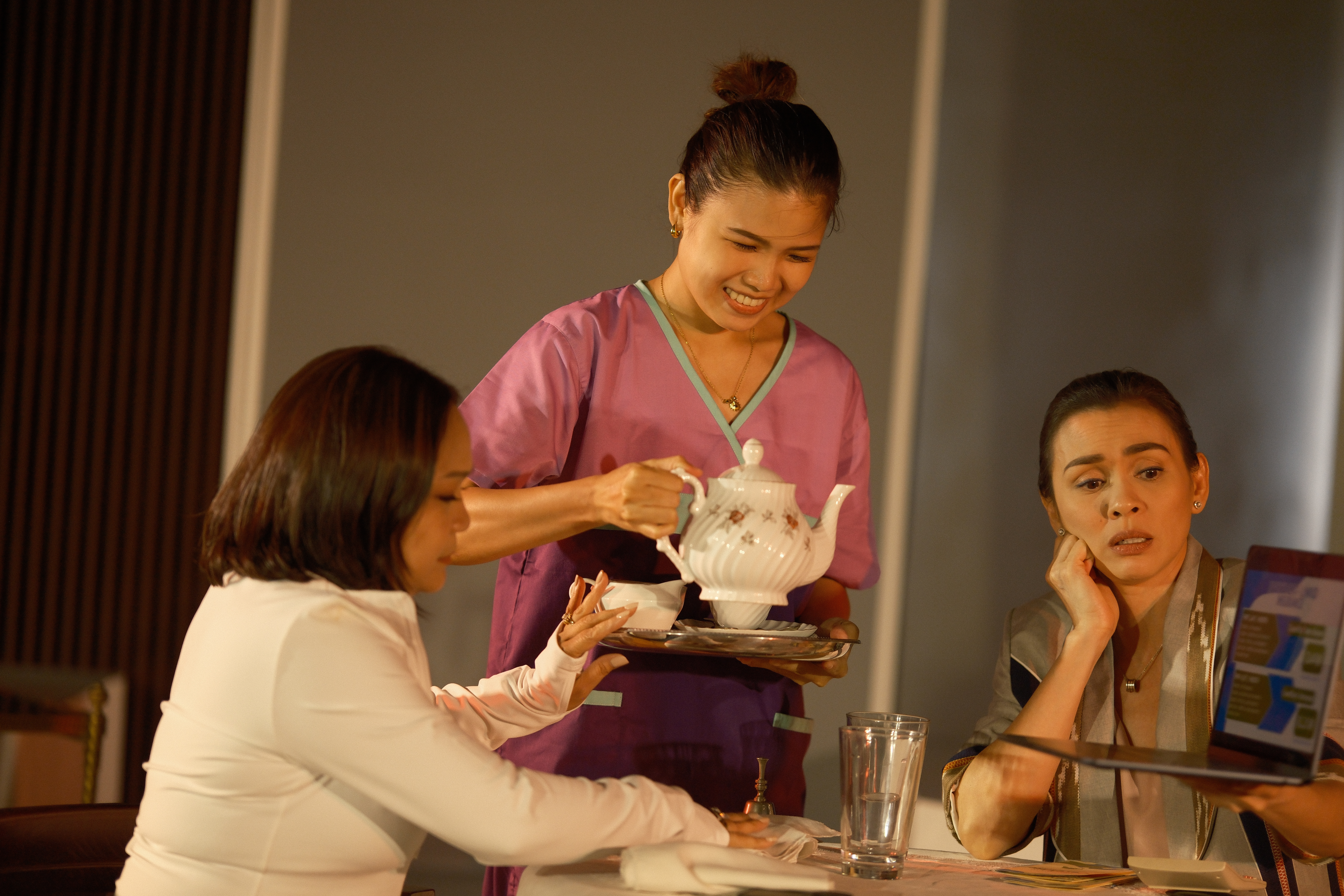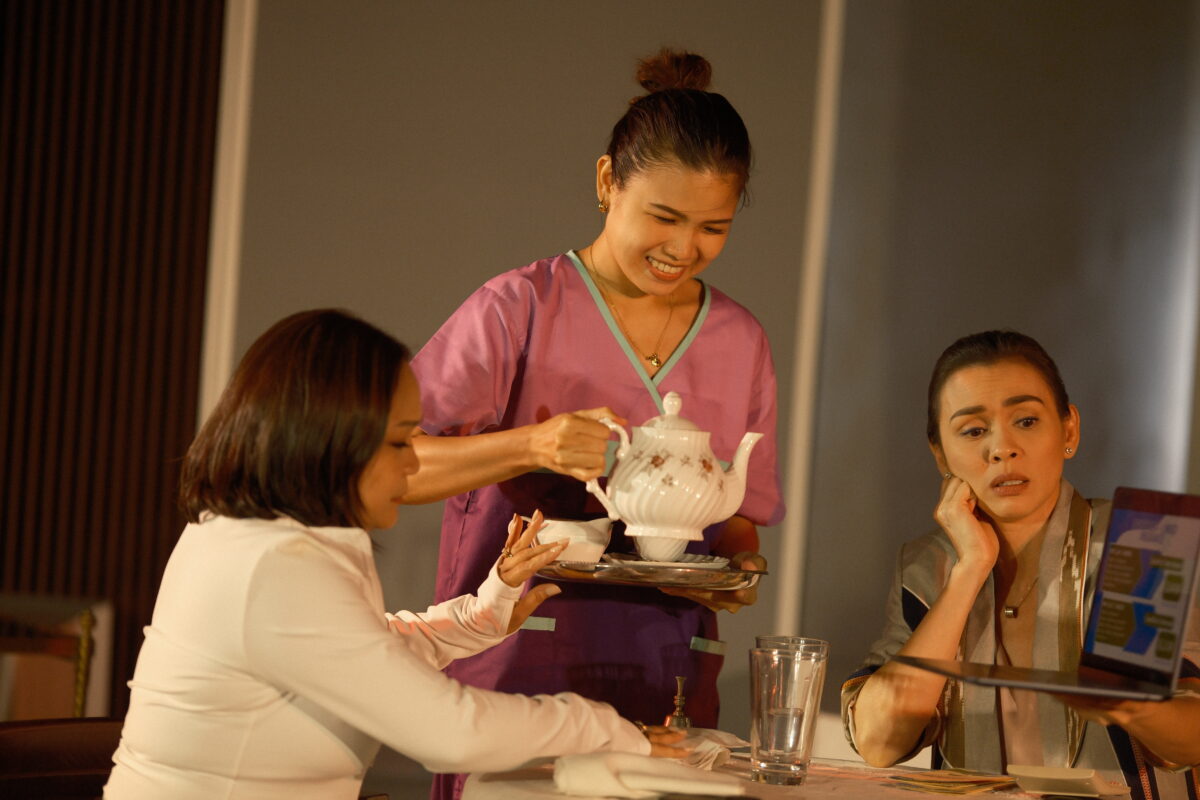
We have no belen or images of the Holy Family to mark Christmas in our household. Nor will our Noche Buena table feature a succulent lechon or glazed ham. As far as our Christian-Muslim family is concerned, these are mere trimmings to the real meaning of the season.
Like most families, we look forward to Christmas, excitedly dusting off the Christmas tree in our Quezon City home, and making plans for what to serve for Noche Buena. We’ve also begun buying Christmas gifts early.
But don’t look for the traditional belen or manger scene, pictures or images of the Holy Family, or the succulent lechon on our Christmas table.
Ours is a Christian-Muslim union, and we celebrate what our daughter describes as a hybrid Christmas.
It’s not as strange as it sounds, and might in fact be expected in our household.
Unlike most intra-religious and intercultural marriages, my wife—Annora Sahi Nocum, a Tausug Muslim from Siasi, Sulu—and I opted to hold on to our respective religions instead of converting each other.
As a former Claretian seminarian partly educated by the Dominicans at UST, I have remained a Catholic, while my wife remains a Muslim.
Thanks to Claretian priest Fr. Angel Calvo, CMF, we managed to secure a “Bishop’s Dispensation” from Zamboanga City Archbishop Carmelo Morelos, D.D., to make our marital union on Oct. 7, 1995 possible, valid and binding in the eyes of the Catholic Church.
After the rites officiated by Fr. Calvo, we had a Muslim wedding. You could say we were married twice.
Our three children Arizza, Ashia and Armand Dean Nocum II (Arno) were baptized in both Catholic and Muslim rites. They are exposed to the rites of both religion, and are free to choose either when they come of age.
My wife was herself fully exposed to Christian practices and rites as a high schooler at the Notre Dame of Siasi, Sulu run by the Oblates of Mary Immaculate Missionaries, and later, as a college student at the Ateneo de Zamboanga University.
Such exposure has made it commonplace among my wife’s relatives to witness and even observe Catholic rites, traditions and practices, although the participation is done more out of respect and in solidarity with my wife’s Catholic friends. Like her relatives who join these rites, Ann does not actively sing, recite the prayers nor take Holy Communion in the weddings, baptisms and Masses where she is invited.
“What’s important is that in attending these rites together, we keep our family close and show respect and understanding to people of different faith,” Ann would say to those who are surprised to see her attending Mass during special family occasions.
After all, Muslims too revere the same Gods that Catholics do, although they see Jesus Christ (called “Isa” in Arabic) as a noble prophet, and pray to his Mother Mary (Maryam). The Holy Qur’an portrays Jesus as a wonderful, humble and generous messenger of God who came down and revealed God’s words to his people, the people of Israel.
Muslims also believe that Jesus was born of the Virgin Mary, that he spoke while he was still a baby, that he healed the blind and the lepers, and that he raised the dead. All of these were done by invoking the name of God.
However, Muslims do not believe in Jesus Christ’s divinity. They also question the date of his birth on December 25.
More crucially, Muslims see Christmas as a pagan practice. The putting up of a Christmas tree is akin to worshipping a tree, something frowned upon by Allah. Thus, celebrating Christmas in memory of the birth of Christ is a big no-no.
But in our household, we’ve managed to see Christmas as a secular activity for Muslims like my wife and her relatives, and a religious one for the Catholic side of the family.
As a secular activity, we see it as good time to celebrate family togetherness, a way of thanking God for all the blessings we receive, and sharing these with the poor.
I think this is now the changing view among Muslims in this predominantly Catholic country. Quite a number of Muslims are joining their Christian brethren in the season of joy not only to celebrate the birth of Christ but to show respect and solidarity with their Christian compatriots as well.
In fact as early as the 1970s, Ann recalls joining friends for Christmas caroling in Siasi, Sulu, for which they were given 25 centavos at every household they serenaded.
“But the activity was done more in the spirit of fun and games with our Christian neighbors. We were innocent of its religious significance then. When we grew up and learned that Muslims don’t celebrate Christmas, we stopped,” she explains.
So this yuletide season, we will be putting up our Christmas tree, complete with glistening decor, and prepare our Christmas list to include both Christian and Muslim friends and relatives.
We’re also planning the Noche Buena feast in the company of Muslim friends and relatives and attend the dawn Masses or misa de gallo as a family.
But our Christmas table will be different. It will be groaning with food as in most Filipino households, but there won’t be any spit-roasted pig nor glazed Christmas ham. There will be no pork dish on our Noche Buena table, period.
If it’s any consolation, I tell myself: It’s all for the good. It’s very healthy for my “bionic” stent-fitted heart. (I had six stents implanted after an angioplasty operation about four years ago.)
Instead, the star of our Noche Buena will be several stuffed and grilled chickens (lechon manok) although this year, we might opt for a turkey.
In keeping with my wife’s appetite for fish, we’ll also have a huge sweet-sour lapu-lapu (grouper) and pancit sotanghon to go with queso de bola, fruit salad and other Christmas dishes.
When we do go home to Zamboanga City for Christmas, we’d usually have a big Christmas feast with the Muslim side of the family, although this is not necessarily done on December 24 or 25. During this time, we hand out gifts to our Muslim friends and relatives, as well as poor Christian and Muslim children being helped by our non-government organization, the Kristiyano-Islam Peace Library.
Last December 2011, we decided to celebrate Christmas by holding the Muslim equivalent of a Christian baptism, which is called “paggunting” in Tausug or “aqiqah” in Arabic, for our newborn boy, Arno.
However, for Muslims who generally do not believe in baptism, the ritual is seen more as a ceremony to welcome a child to the community.
The ceremony was held in the presence of our Muslim family and religious elders at the Library built in 2007 for poor Christians and Muslims in Zamboanga City.
Christmas in our family cannot be exclusively a religious event to avoid misunderstanding. The traditional dawn Masses and the singing of Christmas carols are not strictly observed.
But what we lack in religious rites, we make up for in undertaking apostolic and charity works to honor our common God. Thus far, our Kris Library advocacy has established six libraries in Christian-Muslim communities all over the country, sent 232 scholars to school, and distributed close to 100,000 books and computers to public schools.
And like the recently-signed Framework Agreement for peace, we will continue to show that Muslims and Christian can live together in harmony, all the while respecting each other’s beliefs, practices and traditions.
We are setting up four more Kris Peace Libraries in Christian-Muslim communities in Mindanao this Christmas. This, we believe, is what Christmas is all about: a joyful sharing among people of all faiths. •
Nocum, a former Inquirer reporter, now runs his public relations firm Dean & Kings Communications. He also helps his daughter Arizza, who heads the Kris Library peace literacy advocacy, collect books, computers and donations for library users. Donors can check out the Library website at www.krislibrary.com or call 352-2313/0918-5897879.














































